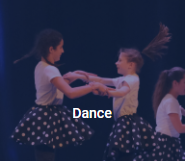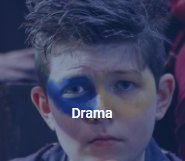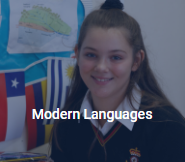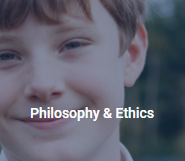| SUBJECT | PURPOSE OF STUDY | KEY DOCUMENTS |
|---|---|---|
 | A high-quality computing education equips pupils to use computational thinking and creativity to understand and change the world. Computing has deep links with mathematics, science, and design and technology, and provides insights into both natural and artificial systems. | COURSE OVERVIEW KS3 Computing Course Overview ASSESSMENT GRIDS Year 7: Computing – Text Adventure Game Year 8: Computing – Number Base Quiz Year 9: Computing – Text Adventure Game |
 | Dance fosters a creative and confident mindset that is transferable to all elements of life. Each student will be practically engaged in understanding how they can move their body and how they go about creating a dance. Students develop their self-confidence and ability to work collaboratively with others. Students are encouraged to contribute their ideas and develop their ability to listen and respond to others. | ASSESSMENT GRIDS Year 7: Dance Year 8: Dance Year 9: Dance |
 | Drama allows students to develop performance skills through teamwork. Learners are empowered with higher order skills through devising, performance and reflection. Drama enables students to build cultural capital, grow social and interpersonal skills and take risks. It creates a platform for free speech and expression through creativity, participation and expression. | COURSE OVERVIEW KS3 Drama Course Overview ASSESSMENT GRIDS Year 7: Drama - Greek Theatre Year 7: Drama - Shakespeare Year 7: Drama - Commedia Year 8: Drama - Set and Costume Year 8: Drama - Two Worlds Year 8: Drama - Melodrama Year 9: Drama - Play Styles |
 | Design and technology is an inspiring, rigorous and practical subject. Using creativity and imagination, pupils design and make products that solve real and relevant problems within a variety of contexts, considering their own and others’ needs, wants and values. | COURSE OVERVIEW KS3 Design & Technology Course Overview ASSESSMENT GRIDS Year 7: Design - Bridge Practical Year 7: Design - Clock Practical Year 8: Design - Balance toy Practical Year 8: Design - Electronics Year 9: Design - Graphical Communication Year 9: Design - Metal bug Practical |
 | English has a pre-eminent place in education and in society. A high-quality education in English will teach pupils to speak and write fluently so that they can communicate their ideas and emotions to others and through their reading and listening, others can communicate with them. Through reading in particular, pupils have a chance to develop culturally, emotionally, intellectually, socially and spiritually. | COURSE OVERVIEW Key Stage 3 Overview ASSESSMENT GRIDS Year 7 - Unit Overview - Autumn - Main - The Hobbit Year 7 - Unit Overview - Autumn - Enrichment - Old and Middle English Year 7 - Unit Overview - Spring - Main - Frankenstein Year 7 - Unit Overview - Spring- Enrichment - Myths Legends & Biblical Allusions Year 7 - Unit Overview - Summer - Enrichment - Man Vs Nature Year 8 - Unit Overview - Autumn - Main - Modern Novel - Noughts and Crosses Year 8 - Unit Overview - Autumn - Enrichment - Dystopia Year 8 - Unit Overview - Spring - Main - The Gothic - Macbeth Year 8 - Unit Overview - Spring - Enrichment - The Gothic - Nineteenth Century Gothic Year 8 - Unit Overview - Summer - Main - Character and Voice Poetry Year 8 - Unit Overview - Summer - Enrichment - Dickensian Characters Year 9 - Unit Overview - Autumn - Main - Ruby in the Smoke Year 9 - Unit Overview - Spring - Main - The Bone Sparrow Year 9 - Unit Overview - Spring- Enrichment - Diversity Year 9 - Unit Overview - Summer - Main - Shakespearean Tragedies |
 | As part of their work with food, pupils should be taught how to cook and apply the principles of nutrition and healthy eating. Instilling a love of cooking in pupils will also open a door to one of the great expressions of human creativity. Learning how to cook is a crucial life skill that enables pupils to feed themselves and others affordably and well, now and in later life. | COURSE OVERVIEW KS3 English Overview Year 7 - Unit Overview Year 8 - Unit Overview Year 9 - Unit Overview ASSESSMENT GRIDS Year 7 - Spring - Myths, Legends and Biblican Illusions - Frankenstein - Reading Year 7 - Spring - Myths, legends and Biblical Allusions - Writing Year 7 - Summer - Shakespeare and The Romantics - Shakespeare's Comedies - Reading Year 7 - Summer - Shakespeare and the Romantics - Writing and Spoken Language Year 7 - Autumn - Storytelling - The Hobbit - Reading Year 7 - Autumn - Storytelling - The Hobbit - Writing Year 8 - Spring - Macbeth - Reading Year 8- Spring - Gothic Fiction- Writing Year 8 - Summer - Poetry - Reading Year 8- Summer- Characters and Voices- Article or Leaflet Writing Year 8 - Autumn - The Modern Novel - TGB and N&C Year 8- Autumn - The Modern Novel - Dystopian- Writing Year 9 - Spring - Diversity -OMAM - Reading Year 9 - Spring - Diversity - Writing Year 9 - Summer - Shakespearean Tragedies - Letter Writing Year 9 - Autumn - Crime and Mystery - Curious - Writing Year 9 - Autumn - Crime and Mystery -Curious - Reading |
 | A high-quality geography education should inspire in pupils a curiosity and fascination about the world and its people that will remain with them for the rest of their lives. Teaching should equip pupils with knowledge about diverse places, people, resources and natural and human environments, together with a deep understanding of the Earth’s key physical and human processes. | COURSE OVERVIEW Year 7: Geography Overview Year 8: Geography Overview Year 9: Geography Overview ASSESSMENT GRIDS Year 7: Geography Year 8: Geography Year 9: Geography |
 | A high-quality history education will help pupils gain a coherent knowledge and understanding of Britain’s past and that of the wider world. It should inspire pupils’ curiosity to know more about the past. Teaching should equip pupils to ask perceptive questions, think critically, weigh evidence, sift arguments, and develop perspective and judgement. | COURSE OVERVIEW KS3 History Overview ASSESSMENT GRIDS Year 7: History - Roman Empire Year 8: History - English Civil War Year 9: History - WW1 Year 9: History - WW2 |
 | Mathematics is a creative and highly inter-connected discipline that has been developed over centuries, providing the solution to some of history’s most intriguing problems. It is essential to everyday life, critical to science, technology and engineering, and necessary for financial literacy and most forms of employment. | COURSE OVERVIEW KS3 Maths Overview ASSESSMENT GRIDS Year 7: Maths - Key Assessments 1 - 6 Year 7: Maths - Key Assessments 7 - 12 Year 8: Maths - Key Assessments 1 - 6 Year 8: Maths - Key Assessments 7 - 12 Year 9: Maths - Key Assessments 1 - 6 Year 9: Maths - Key Assessments 7 - 12 |
 | Learning a foreign language is a liberation from insularity and provides an opening to other cultures. A high-quality languages education should foster pupils’ curiosity and deepen their understanding of the world. The teaching should enable pupils to express their ideas and thoughts in another language and to understand and respond to its speakers, both in speech and in writing. | COURSE OVERVIEW Year 7 French Overview Year 7 Allez 1_levelled framework Year 8 French Overview Year 8 Allez 1_levelled framework Year 9 French Overview Year 9 Allez 2_levelled framework Year 8 Spanish Overview Year 9 Spanish Overview Year 8 German Overview Year 9 German Overview ASSESSMENT GRIDS Year 7: French - UNIT 1 READING Year 8: French - UNIT 1 READING Year 9: French - UNIT 1 READING |
 | Music is a universal language that embodies one of the highest forms of creativity. A high quality music education should engage and inspire pupils to develop a love of music and their talent as musicians, and so increase their self-confidence, creativity and sense of achievement. | COURSE OVERVIEW KS3 Music Overview ASSESSMENT GRIDS Year 7: Music - Ukulele Year 8: Music - African Music Year 9: Music - Rock & Roll Guitar Year 9: Music - Songwriting |
 | Philosophy and Ethics exposes students to the diverse range of religious beliefs in our modern world. Students study stories that challenge their preconceived notions of life, identity and the world they inhabit. Philosophy and Ethics provides students with the knowledge to ask deep questions, while giving them the vocabulary to form their own answers to the more complex and important questions in life. | COURSE OVERVIEW KS3 Philosophy and Ethics Overview ASSESSMENT GRIDS Year 7: Philosophy and Ethics - Creation Stories Year 7: Philosophy and Ethics - Religious Leaders Year 8: Philosophy and Ethics - Codes of Conduct Year 8: Philosophy and Ethics - Modern Religious Leaders Year 9: Philosophy and Ethics - Capital Punishment |
 | A high-quality physical education curriculum inspires all pupils to succeed and excel in competitive sport and other physically-demanding activities. It should provide opportunities for pupils to become physically confident in a way which supports their health and fitness. Opportunities to compete in sport and other activities build character and help to embed values such as fairness and respect. | COURSE OVERVIEW KS3 PE Overview ASSESSMENT GRIDS Year 7-9: Physical Education - Physical Year 7-9: Physical Education - Mental Year 7-9: Physical Education - Social |
 | A high-quality science education provides the foundations for understanding the world through the specific disciplines of biology, chemistry and physics. Science has changed our lives and is vital to the world’s future prosperity, and all pupils should be taught essential aspects of the knowledge, methods, processes and uses of science. | ASSESSMENT GRIDS Year 7: Science Year 8: Science |
 | Art, craft and design embody some of the highest forms of human creativity. A high-quality art and design education should engage, inspire and challenge pupils, equipping them with the knowledge and skills to experiment, invent and create their own works of art, craft and design. | COURSE OVERVIEW KS3 Art Curriculum Overview ASSESSMENT GRIDS Year 7: Visual Arts Year 8: Visual Arts Year 9: Visual Arts KS3: Visual Arts - Assessment descriptions with images |



